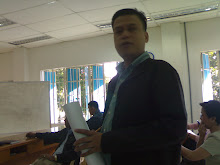
"Belief Systems - Perception - Social Influence - Language - Attitude - Values"
A 'belief' as an assumed truth. As such, everything is a belief—including this statement.
We create beliefs to anchor our understanding of the world around us and once we've formed a belief we typically persevere with that belief even in the face of disconfirming evidence, especially if other people know our belief. It can be embarrassing to climb down from our previous assertions. It is also difficult to remove a belief which has been woven into a wider web of belief, without disturbing those other beliefs. It also 'keeps the peace' within one's own family and geopolitical society. In some cultures expressing beliefs different from those of one's society can result in censure, censorship, excommunication, harassment, banishment, punishment, even execution.
The corollary of our definition of belief is that if we know something to be true, then it is more than a belief. The knotty question is 'How do we know that something is true?' Just because in our experience it has always been true, it doesn't necessarily follow that it will continue being true. There is also the issue of believing something to be true what was never true in the first place. We usually believe that things will happen the way they've always happened, because it is useful to do so. This means that everything is a belief. This is actually good from a persuasion standpoint, because given the right set of evidence even obstinate beliefs can be changed.
Pschologists and researchs have shown that belief is highly entangled with language. If there is a word for something we tend to believe it must exist, as in the Sapir-Whorf Hypothesis. Like it or not, most people 'language' their reality into existence. This is one reason why people from different countries have difficulty 'understanding' one another, because beliefs are wrapped in language and culture.
Most people unknowingly adhere to irrational, unexamined, and superstitious beliefs. Many religious people come to accept church teachings and doctrines with a host of hidden beliefs, ideas, assumptions, fears, and psychological motives they unconsciously seek confirmed, pampered, or placated. If they are willing to question old beliefs they almost always replace these with new teachings and beliefs they presuppose are somehow more "real" and "sensible" than those previous. Hardly ever do they take the next step and question this new set of beliefs and teachings with as much urgency and soul-searching as they might have applied to their preceding belief system. Why is that?In many cases it is a defense mechanism, an unconscious process used to shield anxieties and fears associated with one's most instinctive sense of self. Most often what is hidden is the fear of death, loneliness, low self-esteem, poor self-image, ignorance, guilt, childhood trauma or bad childhood memories. Even believers who have experienced deep spiritual epiphanies will continue to cling to superstitious ideas and irrational beliefs in an unconscious effort to find security in the face of the unknown. It is this grasping for security in all its forms that limits self-awareness and acerbates a noetic imbalance that promotes further guilt, suffering, confusion, or defeatist, docile, or untested thinking. It is ironic that in not wanting to face the beast of one's anxieties, ignorance, and fears, one will embrace an unexamined belief system that further enables anxiety, ignorance, and fear to become dominant. This creates a vicious circle—as fears, ignorance, and anxieties begin to dominate the more are unexamined beliefs adopted and embraced to the exclusion of studied and rational thinking.
In order to break this cycle, you must want to know truth more than you want to feel secure, protect the status quo, or preserve your belief image. You must be willing to engage in sometimes hard and time-consuming work, get your hands dirty, tear the cover off your fears, anxieties, wishes, and dreams, and pull them kicking into the harsh light of reality. You must find the courage to ask difficult questions, uncomfortable questions, uneasy, even irreverent, questions. You must be willing to place the search for truth above everything else—your beliefs, your religion, your concept of God, even your own salvation. Unless you are willing to do this you are being dishonest with yourself and any questions you formulate will be clouded with dishonesty, your search subverted by opportunism and self-interest. For the sake of truth, then, presume nothing, be honest with yourself, know your weaknesses and biases, understand your assumptions, ask difficult questions, read different types of books, study a broad range of topics, research history, take classes, return to school, learn a language, take as much time as you need, and test everything you encounter pursuing truth along a thousand avenues of inquiry.




No comments:
Post a Comment